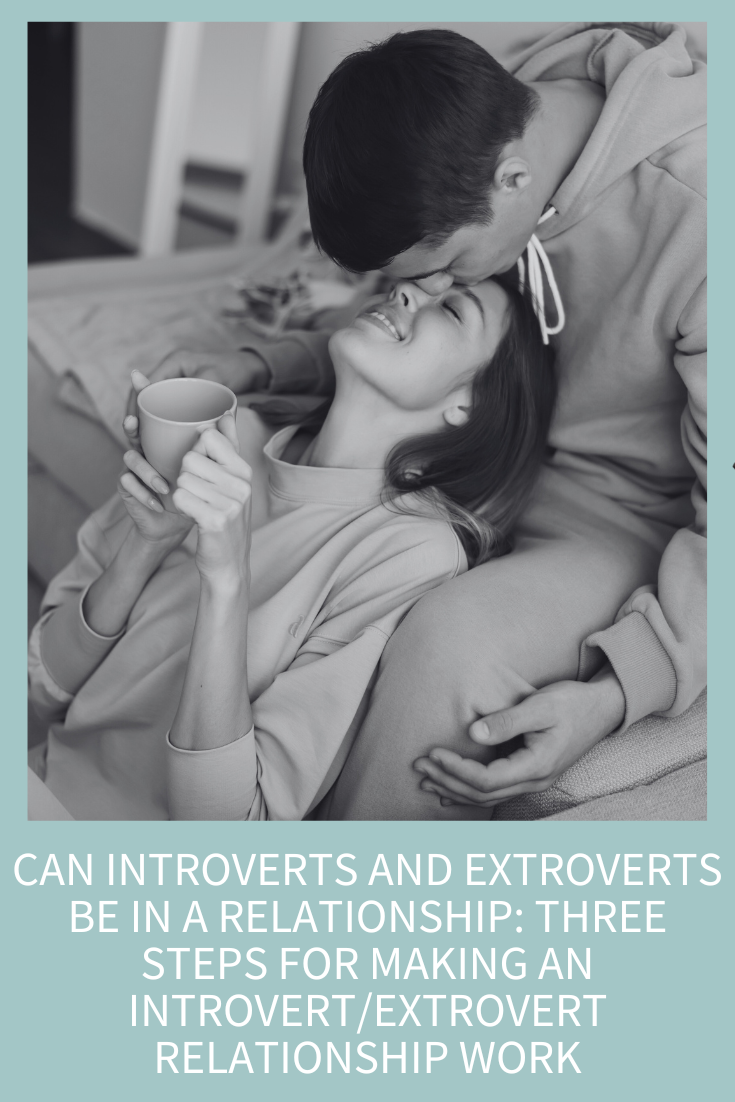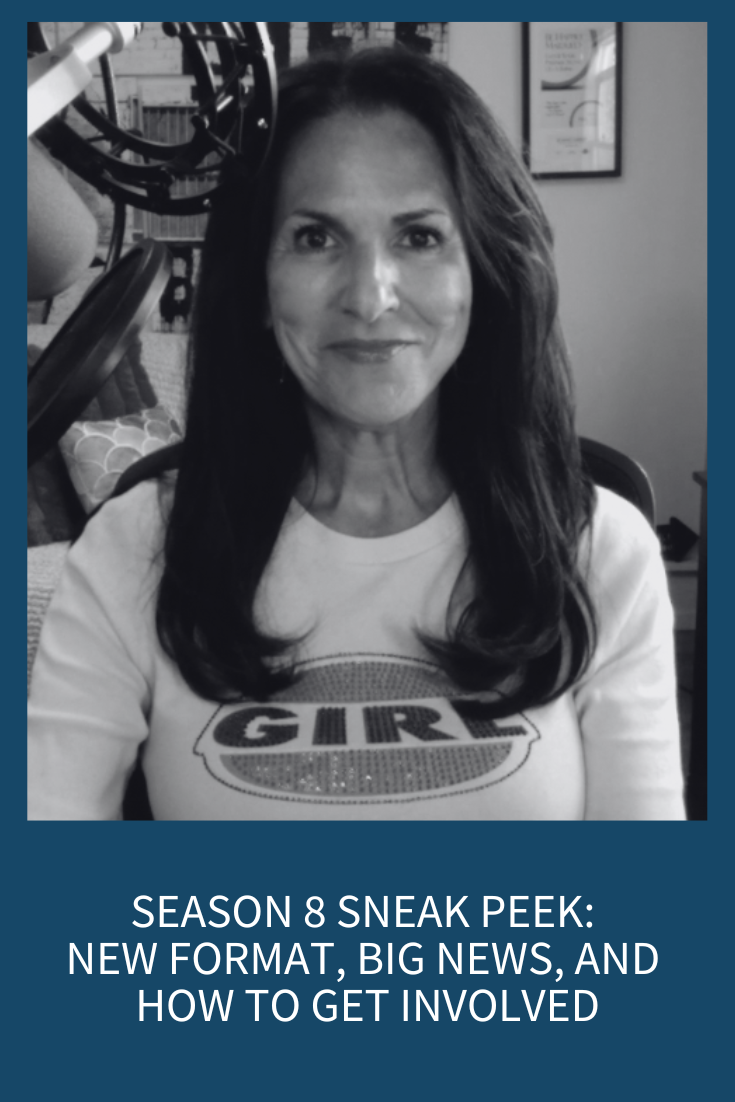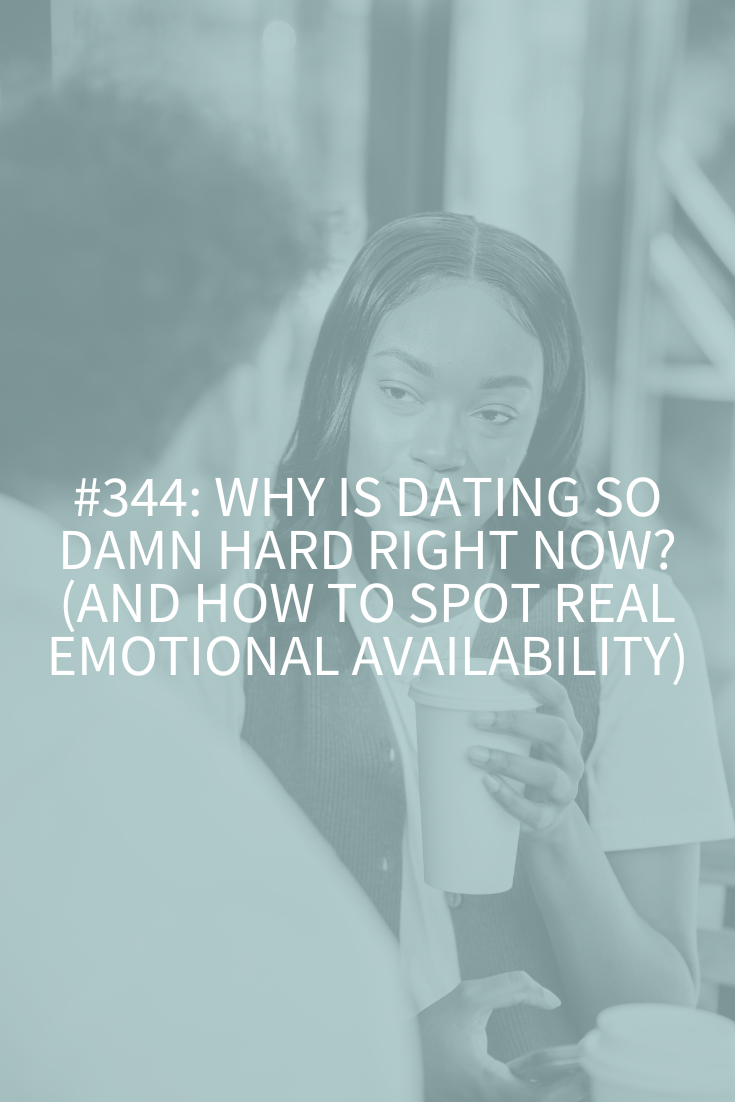
He’d rather stay home, and you’d rather have dinner out. She needs alone time after work, and all you want to do is talk about your day. Introverts are often attracted to extroverts’ vivaciousness, while extroverts often want to be around the still, calm energy that introverts emit. So falling in love can feel easy, but being in a relationship then becomes hard as you have different wants and needs. So, can introverts and extroverts be happy in a relationship? The simple answer is, “Absolutely!” But how do you get there when you feel at odds so often? By following my three steps for creating a connected, loving relationship.
10-minute read
Introduction
Famed psychiatrist (and psychologist) Carl Jung was the first person to specifically identify introversion and extroversion (sometimes spelled extraversion) as personality traits. Last week I discussed the big five personality traits, which include openness, conscientiousness, extraversion, agreeableness and neuroticism. All of the personality traits are really continuums, with introversion being on the opposite end of the extraversion trait.
Before we jump into the definitions of introversion and extroversion, I want to say that, although some people might be at the extreme end of either side, most of us have some characteristics that put us more towards the middle in different situations. The point I want to make is that today isn’t about pigeon-holing; it’s about having new eyes.
Curious about your personality type? Take the Big Five Psychology test to learn about your personality.
Born This Way?
I read an amazing book by Dr. Marti Olsen Laney called The Hidden Gifts of the Introverted Child: Helping Your Child Thrive in an Extroverted World. This book is packed with great research. In it she says that kids are born with certain innate temperaments, and parents are key in how that temperament is nurtured, but she’s clear that introverts are (mostly) born that way. In fact, of all the personality traits, introversion/extroversion is strongly hereditary.
Believe it or not, how introverted or extroverted you are is based mostly in your biochemistry. Just like your DNA comes together to give you blue eyes, brown hair and long legs, your brain chemistry is the same. How your particular neurochemistry works depends on your particular makeup.
So just as heart disease might run in your family, so can depression, alcoholism and anxiety, all because of how your brain’s chemical messengers (your neurotransmitters) line up. One of these neurotransmitters, dopamine, is key here. When you’re going after some kind of external reward, dopamine is released for most people. It’s this reward effect that has you going back for another cookie or drink. Research has shown that the brains of introverts are far less sensitive to dopamine.
Because introverts don’t get the same excitement or reward that extroverts do, they don’t go after as much external stimulation such as other people, parties or events. So, it’s nature (your biochemistry) and what events and circumstances (nurture) that decide where you’re going to be on the introversion-extroversion continuum, but the research shows that most people tend to stay true to the preference they showed in those first four months of life.
Now let’s talk about this introversion-extroversion continuum.
The Introvert-Extrovert Continuum
First things first: Introversion and shyness are two different things. When someone tells me they’re shy, this generally means that they have some social anxiety or some feelings of low self-esteem, self-consciousness or unworthiness that needs to be explored and treated. It stems from a real fear of others, which is an issue.
Introversion, on the other hand, is not something that needs to be treated. Extremes on either end of the scale (extreme introversion or extreme extroversion) are issues, but run-of-the-mill introverts are not a problem to be solved and don’t have a mental health issue to be pathologized. Introversion is typically characterized as someone who focuses more on their internal feelings rather than external stimulation. I’d say the big marker is that introverts find energy and fill their tanks with time alone, while extroverts feel their batteries recharged after spending time with friends or at an event like a concert, sporting event or party. It’s said that introverts need to expend energy in social situations, while extroverts gain energy in those same situations.
This isn’t to say that introverts don’t like people. In fact, many introverts love to spend time with others, but they generally prefer smaller gatherings, one-to-one interactions and to spend time with people with whom they feel close while extroverts are on line at the grocery store making a new best friend. They often have multiple friend groups and many acquaintances.
What’s different is that an introvert will come home from a long day with family and want to spend time alone. They might want to watch a movie alone, play video games, read, take a bath or play games on their phone. Meanwhile, their extroverted partner, who was at the same event, might want to stop at a bar on the way home to have some more fun or get home and want to sit together for dinner (or even have sex).
When it comes to friends, extroverts will have many groups of friends and will love to do fun things with them. An introvert will likely have a smaller group of close friends with more emotionally close relationships. They, of course, want to do fun things too but it’s more about sharing an experience that brings them closer versus having a broader experience that they want to document on social media.
Extroverts can go out, have a boisterous dinner, do an escape room, and then meet up for drinks after and feel elated, focused and recount all the fun they had. Meanwhile, research shows that introverts don’t do well in situations where there’s a lot going on because too much stimulation leaves them feeling overwhelmed and distracted. Yes, introverts are more easily distracted than extroverts in general, so wanting calmer situations isn’t just a preference, it’s a need.
Being too extreme on the introversion end can have negative effects such as isolation, mental health issues and even physical ones. There’s difficulty maintaining relationships and often depression and anxiety. But the extreme end of extroversion can also be an issue as research shows that they can be more impulsive, overconfident, reckless and intolerant of boredom.
Ambiverts
As much as it’s fun to diagnose ourselves as introverts or extroverts, most people are actually ambiverts, where we can enjoy spending time with others but still need to recharge. For many of us, our introversion or extroversion depends on the people and situation we’re in. What we’re looking at today is where you tend to lean and how that’s become an issue in your relationships.
Abby’s Three Steps for Being in a Healthy Extrovert/Introvert Relationship
Step #1: Stop Judging and Start Appreciating
Being an extrovert or an introvert is a part of your personality and not something to be fixed (unless you’re on an extreme end of either). One isn’t right and one isn’t wrong. Instead of judging yourself or your partner’s proclivities, see them instead as preferences. Your partner prefers to be out mingling at a party versus staying at home. Your partner needs more downtime than you do. Your partner enjoys his one friend; he doesn’t need to add to his friend group. Instead of judging how your partner is, look to accept them for who they are. Remember, you’re a team, so how can you stop judging and trying to change your partner and learn to embrace who they are instead?
If you’re an extrovert, stop judging your introverted partner:
- If they’re quiet, it doesn’t mean they’re frustrated or angry.
- Introverts and extroverts are both fun you just might have a different definition of what having fun means.
- It’s not rude when they say they need time alone or to leave a party early.
If you’re an introvert, stop judging your extroverted partner:
- They’re not too
- They don’t like to just be the center of attention, like some sort of ego thing. They like to engage because it energizes them.
- They’re not too much.
Step #2: Learn Something, Don’t Prove Something
With the judgment gone, you can hopefully see that there’s a lot you can learn from one another. For you extroverts, what would it mean to slow down a notch and spend some quality time with yourself? Are you avoiding anything by being busy or out and about? How do you feel when you’re quiet and calm and how could that be good for you?
For you introverts, is there any part of your introversion that borders on social anxiety that needs to be looked at? Is there any fear in your interactions with others that should be addressed? How do you feel on a day-to-day basis about your needs? Are you judging yourself unfairly?
Instead of pushing against your partner’s introversion or extroversion, what is it you can learn and adopt from them that could be helpful in your own growth? In conversations or arguments, can you try to learn something instead of focusing on proving something?
If your partner is different than you, do some work learning about this particular personality trait. For example, extroverts tend to learn better through hands-on experience; so they will jump into situations and conversations quickly. Introverts, on the other hand, will often initially hang back and watch for a minute before taking action. They prefer to learn through observing. Understanding this about your partner means you can know the best way to discuss something with them or at least remind them of their preference before beginning a difficult conversation to help keep defensiveness at a minimum.
Another difference is that extroverts tend to discuss first when they’re upset or problem-solving, while introverts tend to think about an issue on their own first and then come to you with a complete thought set. Understanding this about your partner can help you figure out “rules of engagement” for your relationship so you can both feel heard.
If you’re an introvert, be open to being with someone who gives you more opportunities to meet new people or try new things you might have never thought of. If you’re an extrovert, you’ve got your own opportunities to be more introspective and slow down. Both of you can grow by reaching slightly out of your comfort zone.
Follow this quick seven-step process to listen without getting defensive or hurt.
Step #3: Create Mutual Agreements of Understanding
Now that you’ve stopped judging and thinking your partner needs to change, and have deepened your understanding and acceptance of the way they operate, you’re ready to create some mutual agreements. In the big picture, you want to problem-solve together how you’d like to deal with social situations or other issues that arise from your differences.
First you need to stop and think, “What do I need to be happy in this relationship?” The answer should not be something your partner needs to do. For example, if you’re an extrovert, the answer can’t be, “I need my introverted partner to go do more things with me, then I’ll be happy.”
I know this is a tough pill to swallow, but it’s not your partner’s job to change your happiness level. Instead, this is a time for radical acceptance and, again, embracing of what is. Why do you need your partner with you when you go out? Or why do you need your partner to stay in more?
The answers to these questions generally come from insecurities or past assumptions about the way a relationship “should” be. I need you both to be secure in your own way of operating while remaining open and flexible to your partner’s ways of operating. If your partner goes out a lot without you, you can’t be at home feeling jealous, abandoned or rejected. That’s about you, not them. Or maybe you’re the extrovert who’s misinterpreted your introverted partner’s need for more alone time as their rejection and abandonment of you.
If you stay in love-based emotions instead of fear-based ones, it’s easier to problem-solve situations. For example, maybe you both go to the big holiday party together but agree ahead of time how long you’ll stay or maybe drive separately so the introverted partner can leave if they feel drained.
Resources for Can Introverts and Extroverts Be in a Relationship?
You Can Change Your Personality by Doing This One Thing
How to Listen Without Getting Defensive or Hurt






